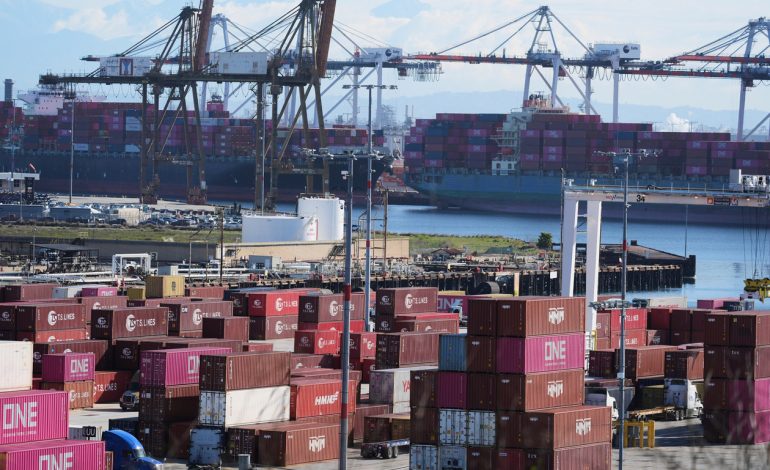The Port of Los Angeles, the largest in the United States, is navigating turbulent waters as the Trump administration’s trade tariffs continue to impact the nation’s economy.
Gene Seroka, the port’s Executive Director, is at the forefront of managing the situation, which has been complicated by the introduction of tariffs on a wide array of imported goods.
The Port of Los Angeles, along with the nearby Port of Long Beach, handles approximately a third of the US’s total imports and exports. The tariffs imposed by the Trump administration, including a blanket 10 percent duty on all imported goods and higher tariffs on specific trading partners such as China, Japan, and the European Union, have created significant uncertainty within the shipping and trade sectors. This uncertainty has left many businesses, from large corporations to small family-owned firms, scrambling to adjust to the shifting trade landscape.
Seroka expressed his concern over the impact of these tariffs on both large and small businesses, noting that while big companies had the ability to advance inventory and prepare for the tariffs, smaller businesses may struggle to absorb the additional costs. These higher costs are often passed along the supply chain, ultimately leading to price increases for consumers. The ripple effects of these price hikes could hurt consumer confidence and slow down economic growth, as companies become more cautious about their investments, including staffing decisions.
Seroka also foresees a potential decrease in cargo volumes starting in the second half of the year. He predicts that the Port of Los Angeles could see a drop of at least 10 percent in cargo, driven by two primary factors. First, many companies have already imported large quantities of goods ahead of the tariffs, so the demand for additional products will likely decrease. Second, the rising costs of goods may prompt companies to seek alternative sourcing strategies, moving away from regions heavily impacted by tariffs, such as China.
The slowdown in cargo could have far-reaching implications for Southern California’s economy. According to Seroka, nearly one in nine jobs in the region are tied to port activities, including truck drivers, warehouse workers, and manufacturers. A decrease in cargo volumes could lead to job losses, particularly in the trucking and warehouse sectors. Additionally, local municipalities that rely on port-related taxes could see a drop in revenue, affecting public services.
Despite the growing challenges, Seroka and others in the industry are calling for more clarity from the Trump administration on its long-term trade strategy. While some are hopeful that ongoing negotiations will lead to a resolution, the lack of a clear plan has made it difficult for businesses to make informed decisions about the future.
With input from the New York Times and Politico.










The latest news in your social feeds
Subscribe to our social media platforms to stay tuned